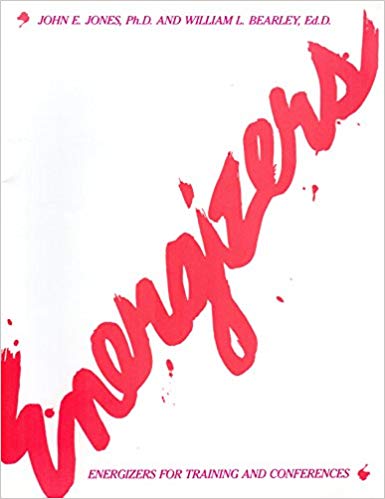ENERGIZERS ACTIVITY BOOK
by John E. Jones and William L. Bearly, EdE
Your participants have just returned from lunch and their eyes are glazing over. Don't despair - energize them! The icebreakers and energizers in this collection can be used at any point during any type of training session, workshop, or conference. Each activity is accompanied by a brief description, standard procedures, variations, and space for recording your ideas. They're short, quick, sometimes physical, often competitive - and always fun!
Use Energizers To:
- Create excitement. You're excited about the content of your training event or conference. That does not mean that your participants are equally stimulated. Learning is exciting to children, but adults sometimes seem not to want the experience. Energizers can generate a positive expectation of upcoming training and conference events.
- Overcome the effects of fatigue, drowsiness, and drag. Long days, hot rooms, difficult material - all these can put participants in a kind of mild stupor. Energizers can "wake them up" to go on with the program refreshed.
- Develop a sense of shared fun. You can facilitate even the most serious deliberations with comic relief, as long as you keep a proper perspective on the proceedings. An occasional group laugh can make any session more lively.
Sample activities include:
- Big Apple - creating the sounds of New York City
- Putt Off - a golf-putting competition
- Charades - acting out happenings, events, and processes
- Imaginary Ball Game - inventing and playing a game without talking
- Limericks - composing and sharing silly rhymes
These activities are not "throw-ins," randomly inserted into the proceedings. They are purposeful, and they need to be used strategically. There are three times when using Energizers can greatly enhance the impact of training and conferences: just after a meal, after a refreshment break, and when a long session begins to drag. These are the most common times when participants are likely to be "de-energized," or less than optimally ready to go on with the program. You may actually reduce the impact of your session by overusing these activities or by using them at the wrong times.